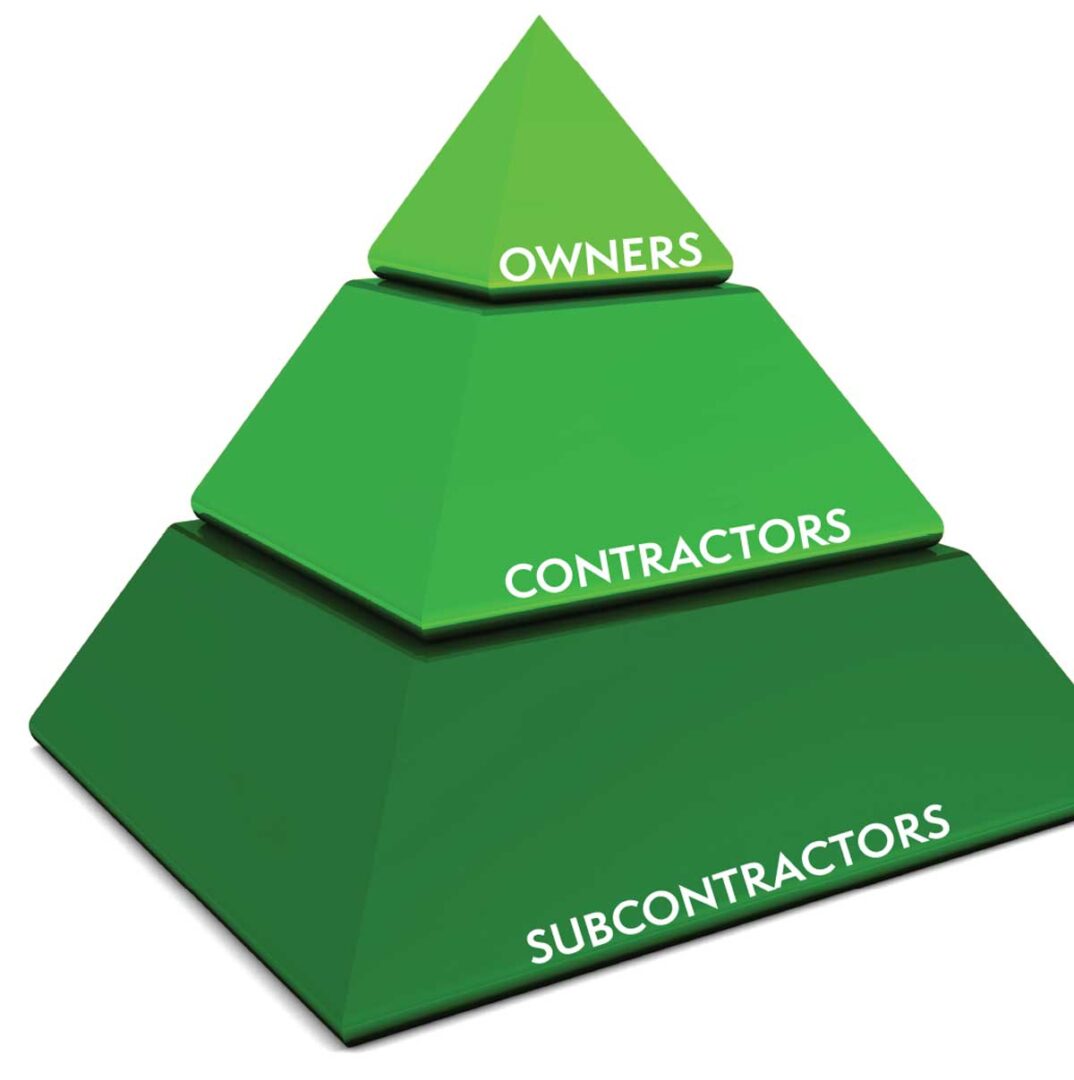
Each common law province in Canada has its own construction lien legislation. Lien legislation imposes obligations on, and provides various remedies to, various players in the construction industry. However, in Ontario, the Construction Act (the Ontario Act) as it read before July 1, 2018, did not provide for any certainty of timely payments from owner to contractor, from contractor to subcontractor and so on down the steps of the construction pyramid. Following examples in other countries and regions, and following a lengthy review commissioned by the Ontario government,1 Ontario introduced ‘prompt payment’ into its legislation, the Ontario Act.2
Prompt payment came into effect in Ontario on Oct. 1, 2019. However, it did not automatically apply to all construction contracts/subcontracts. Rather, the transition provisions in the Ontario Act must be looked at to determine whether prompt payment provisions are applicable to a contract or subcontract. If the contract or procurement process was entered on or after Oct. 1, 2019, then the prompt payment provisions of the Ontario Act apply to construction contracts and subcontracts. Therefore, all players in the construction industry need to ensure that their contracts or subcontracts are compliant with the prompt payment provisions, failing which, any provisions contrary to the provisions will be void and the payment terms as set out in the Ontario Act will be read into the contract.
The federal government and other common law provinces have either introduced prompt payment legislation or are in the process of introducing prompt payment legislation. Currently, the Ontario Act is the only one in effect. However, the federal government has enacted federal prompt payment legislation (not yet in effect) and other provinces are following suit.
Prompt payment was introduced as Part I.1 of the Ontario Act and it, amongst other components, provides timelines for payments, a process for providing notice where payments will not be made in accordance with those timelines or at all, and in some circumstances, directs parties to resolve issues surrounding non-payment to interim adjudication.

The trigger for payment is the submission of a “proper invoice” from a contractor to an owner. Upon receipt of the proper invoice, the owner shall pay the contractor no later than 28 days after receipt. Upon receipt of the funds, the contractor shall pay its subcontractor(s) within seven days. Further, upon receipt of the funds from the contractor, a subcontractor shall pay its own subcontractor(s) within seven days upon receipt. This timeline continues all the way down the construction pyramid.
Further, in the event of a dispute, the non-paying party must provide a “Notice of Non-Payment” in a prescribed form and within the prescribed time. The owner must provide a Notice of Non-Payment to the contractor within 14 days of receipt of the proper invoice. If the contractor intends not to pay subcontractors as a result of the Notice of Non-Payment received from the owner, the contractor must provide a Notice of Non-Payment to subcontractors within seven days or otherwise 35 days after receipt of the proper invoice. If the subcontractor intends not to pay its subcontractors as a result of the Notice of Non-Payment received from the contractor, the subcontractor must provide the Notice of Non-Payment to the sub-subcontractor within seven days of receipt of the Notice of Non-Payment. Any party relying on a Notice of Non-Payment from its payer as a basis for not paying their trade/supplier must within 21 days, refer the payment dispute to interim adjudication.
It is important to understand that a proper invoice only applies to a contract and not a subcontract. A subcontractor does not issue a proper invoice. It is only the contractor’s invoice to the owner that is a proper invoice and is the trigger of payment. As such, the timing of the subcontractor’s payment is based on when the contractor carried the subcontractor’s invoice in the proper invoice.
In light of the transition provisions, it is too soon to see how prompt payment will impact the flow of funds on a construction project and whether parties to a contract will refer a dispute to interim adjudication. To date, there have been no reported decisions on the prompt payment provisions in the Ontario Act and a variety of questions remains. For instance, the Ontario Act is silent on the consequences for failure to comply with the timelines or at all with the provisions. Further considering that a party can provide a Notice of Non-Payment in situations where that party was not paid by its payer begs questioning whether the legislature effectively implied a “pay-when-paid” clause into construction contracts. Given the ability of a party to provide a Notice of Non-Payment where it was not paid, the Ontario Act appears to provide a valid defence to non-payment, even where there is no “pay-when-paid” clause in the relevant contract or subcontract, as long as the non-paying party complies with the prompt payment provisions of the Ontario Act.
Federal legislation and other provincial legislation
The federal government followed suit with their own prompt payment legislation, known as the Federal Prompt Payment for Construction Work Act (the Federal Act).3 The Federal Act contains similarities to the Ontario Act, though there are differences in the trigger points for the payment timeframes.
Prompt payment came into effect in Ontario on Oct. 1, 2019. However, it did not automatically apply to all construction contracts/subcontracts.
The Federal Act applies to all federally owned projects throughout Canada, though the federal government may exempt provinces from application of the Federal Act, provided that the provincial governments have a similar prompt payment legislation of their own. Whether caused by the Federal Act or not, each common law province has enacted their own prompt payment legislation, though it bears restating that none of these are currently in force, expect Ontario’s.
Interim adjudication
In addition to the prompt payment provisions is the Construction Dispute Interim Adjudication (Interim Adjudication). Interim Adjudication is a forum that provides prompt adjudication of disputes that may delay payment down the construction pyramid. Though, under the Ontario Act, parties can refer almost any dispute for Interim Adjudication, even if it does not necessarily relate to the giving of a Notice of Non-Payment.
The whole process is intended to be very quick and easy, with a significant portion taking place online via www.odacc.ca. It can take anywhere from 30 to 44 days from start to finish.
Furthermore, parties can choose an adjudicator with expertise for the relevant issue in dispute as adjudicators are architects, engineers, lawyers, quantity surveyors, project managers, accountants or others with experience in the construction industry. For instance, if the issue in dispute relates to the volume of cubic metres of concrete poured on a project, it may be worthwhile to appoint a quantity surveyor as the adjudicator.
Inherent in the term Interim Adjudication, while a determination by an adjudicator is binding, a party may still register a construction lien and/or commence an ordinary court proceeding or arbitration regarding the same issue in dispute. Accordingly, lawyers will often advise their clients to preserve and perfect their construction liens notwithstanding a parallel Interim Adjudication.
Conclusions
The existence of prompt payment and Interim Adjudication are relatively new in Ontario, and across Canada, and there are still many questions. Notwithstanding the uncertainty, prompt payment and Interim Adjudication are welcome additions to construction statutes to satisfy the intended purpose of ensuring timely payments and interim resolution of disputes to avoid project delays.
References
- Bruce Reynolds & Sharon Vogel, “Striking the Balance: Expert Review of Ontario’s Construction Lien Act” Report Prepared for the Attorney General and the Ministry of Economic Development, Employment and Infrastructure, April 30, 2016.
- Construction Act, RSO 1990, c C30.
- Federal Prompt Payment for Construction Work Act, being Division 26 of Part 4 of the Budget Implementation Act, 2019, No. 1, SC 2019, c 29, s 387.


Maria Ruberto is a partner at Pallett Valo LLP. Kyle L. Kuczynski is a lawyer with Pallett Valo LLP.